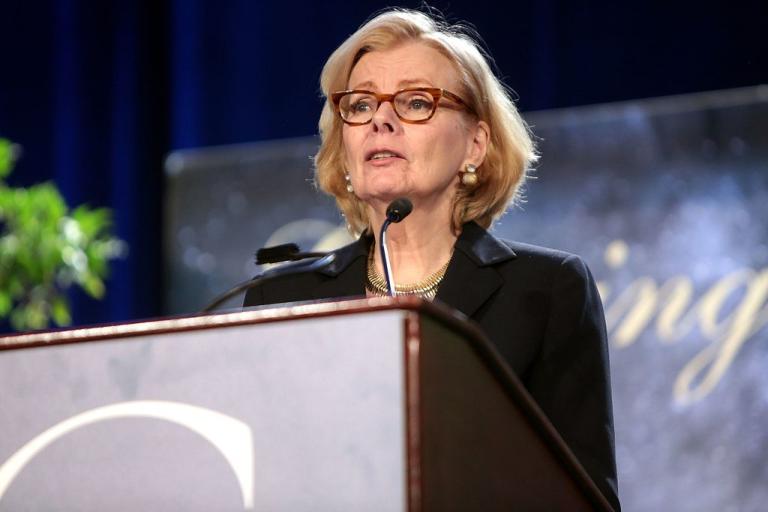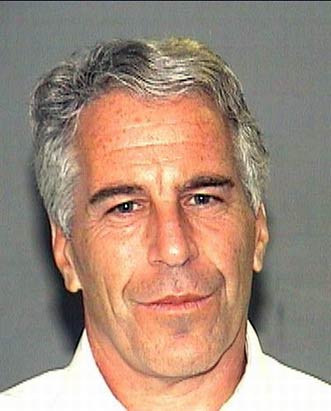Continuing our look back at 2017, we turn our attention to developments in religion. A poll of religion journalists has given us another Top Ten list of the top stories in that realm. But it’s an odd list, though revealing in its own way. Most of the items have to do with Donald Trump, as if he has some kind of religious significance! I’ll give the list and offer some comments.
1. Trumpvangelicals. That is, the phenomenon of evangelicals and other conservative Christians supporting and having a voice in Donald Trump’s presidency. The secularist left finds it hilarious that Christian conservatives who once went by the name “moral majority” are among the most reliable backers of a thrice-married casino magnate with a history of womanizing who says he has never asked for God’s forgiveness because he has never done anything that needs forgiving. For the left, this just confirms that Christian conservatives don’t really believe in any of that morality stuff and that all they care about is gaining political power.
But maybe there is a different explanation. Perhaps the Trump alliance shows that the Christian right is neither hypocritical nor dead. Maybe it has matured. Perhaps the Christian right has turned away from identity politics, in which voters line up behind someone like them (which Democrats have started to depend on), for the more pragmatic tactic of realpolitik, voting for the candidate who will advance your interests. Evangelicals started their serious political involvement by voting for the born-again Jimmy Carter and continued in that vein with various Republicans, but with little to show for it. Trump, on the other hand, though not one of the tribe, is advancing the pro-life cause, setting religious freedom policies, and appointing culturally-conservative judges.
2. White supremacists march in Charlottesville, Va. I suppose the religious angle to that event is the neo-Nazi torchlight anti-semitism. But there were far more expressions last year of anti-semitism from the academic left. The Charlottesville march, though, was supposedly in support of Trump.
3. Muslim travel ban. The story is that Trump doesn’t like Muslims. So why didn’t he ban Muslims from all of the other Islamic countries? Why did he just ban the Muslims from a small handful of countries involved with terrorism?
4. Trump moves U.S. embassy to Jerusalem. Why is this a religion story? Because it offended Muslims who consider Jerusalem to be one of their holy cities? Because it pleased end-times Christians and radical Jews, both of whom want to rebuild the Temple and re-establish the Levitical laws and sacrifices so that the Messiah will come? But I didn’t read any mainstream news treatments about that. And the U.S. action, which hasn’t happened yet, didn’t make Jerusalem the capital. Israel had already done that after the Six Day War in 1967. The U.S. moving its embassy doesn’t make Jerusalem any more the seat of Israel’s government than it already was. But this was the work of Trump, so it must be a religion story.
5. Atrocities against the Muslim Rohingya. The Buddhist state of Myanmar has been carrying out a genocidal ethnic cleansing campaign against its Rohingya minority group, which are Muslims. Over six thousand have been massacred, villages have been destroyed, with 500,000 fleeing to Bangladesh. This is a new picture of Buddhism to Westerners. Christians are not responsible for this story. Neither is Donald Trump.
6. Church shooting in Sutherland Springs, Texas. A militant atheist spouse-abuser goes into a small Baptist Church towards the end of a worship service and starts shooting, killing 26 worshippers of all ages and wounding 20. This was the deadliest church shooting in history. It sparked discussion not of a growing hostility to religion but of gun control (even though private citizens with guns stopped the killer). The lack of gun control was blamed on Trump.
7. Judge Roy Moore’s Senate campaign. Again, secularists love hypocrisy narratives. Judge Moore, famous for his refusal to take down monuments of the Ten Commandments, turned out to have a history of pursuing and in some cases molesting under-aged teenaged girls. In perhaps a test case of my hypothesis in my comments above, some Christian conservatives supported him anyway for the pragmatic reason of keeping a Republican majority in the Senate. But other Christians held on to their traditional moral criteria, leading to Moore’s defeat. Now a liberal Democrat represents the arch-conservative state of Alabama. Surely, though, this is more of a political than a religious story. Coverage somehow turned Moore’s campaign into another Trump story, though Trump opposed Moore in the primary.
8. The appointments of Neil Gorsuch and other conservative judges. By Donald Trump. Again, is this a religious story, as such, just because religious people are glad to have another conservative on the Supreme Court and have high hopes for pro-life judges?
9. National Football League protests. Why is this a religious story, except to the extent football has become the national religion? The Religious News Service, in announcing the list, said that some of the players refusing to honor the flag–by kneeling? I thought that was a religious gesture of offering extreme honor!–were motivated by their religious beliefs. I did learn that the player, Colin Kaepernick, who started the protests–in support of Black Lives Matter–was a Lutheran, though I don’t recall reading about national anthems in the Book of Concord. The protests seem to have hurt NFL ratings and shaken the national faith in football. And some pundits have connected it to a larger protest of Donald Trump. So the Trump connection must have helped this story make the list.
10. The 500th Anniversary of the Protestant Reformation. I’m glad this story made the cut! As a Lutheran, it was gratifying to see our top theologian getting so much press. And yet, so much of it missed the point of Luther’s emphasis on the Word of God and on the Gospel of Jesus Christ. This would have been a good occasion also to discuss other elements of his theology, such as the distinction between Law and Gospel, his Theology of the Cross, and his view of the Sacraments. But most of the stories on Luther were about his cultural influence, often getting that wrong too by presenting Luther as the precursor of the Enlightenment, Modernism, and even Secularism!
So, what repeated themes do we see in these top stories?
Six of the 10 are about Donald Trump. Two more, in their journalistic coverage were indirectly tied to President Trump. Only two–the Rohinga genocide and the Reformation anniversary–were completely Trump-free.
None of the 10 had anything to do with actual religious leaders. Nothing about Pope Francis, despite the many controversies and provocative changes that the Pope was involved in this past year.
Is Trump the leader of American religion? At least according to those who don’t think much of either Trump or American religion?
Half of the top stories involved not so much religion as real or perceived hostility to religion. And two more of the stories indicated the journalists’ own hostility to religion.
There are no stories in the top 10 list about religious freedom or attempts to curtail it. Nothing about sexual morality, neither the heralds of change in the culture’s acceptance of LGBT issues nor the heralds of the pendulum starting to swing the other way in the rise of severe consequences for “sexual misconduct” (a story which made #1 in the secular news top 10!).
What other religious developments happened in 2017 that should have made this list?
Photo of President Trump at the Wailing Wall in Jerusalem by Matty Stern/U.S. Embassy Tel Aviv (DSC_3714OSD) [Public domain], via Wikimedia Commons


















